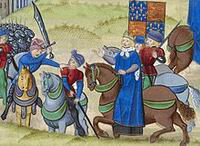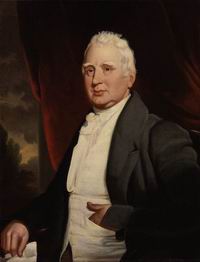Seeds of Fire: A People’s Chronology
Recalling events that happened on this day in history.
Memories of struggle, resistance and persistence.
Compiled by Ulli Diemer
|
June 15, 1215
|
|
|
King John of England gives in to pressure from the English barons and reluctantly signs the Magna Carta (the “Great Charter”) which states that freemen have certain rights and liberties, that not even the king may infringe. Among the Magna Carta’s important provisions is the guarantee that no freeman may be imprisoned or punished without due process. The rights in the charter apply only to a privileged minority, but nonetheless they mark a victory against arbitrary power.
|
|
June 15, 1381
|

|
|
Wat Tyler, a key leader of the 1381 Peasants’ Revolt in England, is murdered by royalists who have lured him into the open by offering to negotiate under a flag of truce. The peasants’ revolt was sparked by resistance to a poll tax, but also expresses a widespread demand for freedom.
|
|
June 15, 1767
|
|
|
“It was on the fifteenth of June, 1767, that Cosimo Piovasco de Rondo, my brother, sat among us for the last time. And it might have been today, I remember it so clearly.”
So begins Italo Calvino’s novel The Baron in the Trees (Il barone rampante), published in 1957. It tells the story of a youth who climbs up into a tree and refuses, for the rest of his long life, to ever return to the ground.
|
|
June 15, 1810
|

|
|
William Cobbett (1763-1835), English writer and reformer, is found guilty of treasonous libel after publishing an article condemning a flogging. He is sentenced to two years imprisonment in Newgate Prison, where he continues to write. When he is released, 600 people attend a dinner in his honour.
|
|
June 15, 1898
|
|
|
The U.S. House of Representatives passes the Newlands Resolution, a motion to seize the Republic of Hawaii and make it American territory. The Senate passes the resolution a few days later. The people of Hawaii are given no say in the matter.
Hawaii is formally annexed to the United States on August 12, 1898. On the day of annexation most Hawaiians shutter themselves at home and mourn for the end of Hawaii’s independence
|
|
June 15, 1944
|

|
|
The Co-operative Commonwealth Federation (CCF) wins the provincial election in Saskatchewan, and becomes the first social democratic government in North America, with T.C. (Tommy) Douglas as Premier.
|
|
June 15, 1962
|
|
|
The first annual convention of Students for a Democratic Society (SDS) adopts the Port Huron statement, which outlines its vision of social change and participatory democracy, and becomes a formative document of the 1960s “new left” in the United States.
|
|
June 15, 2000
|

|
|
The Queen’s Park Police Riot. Police attack a demonstration by anti-poverty activists outside the Ontario legislature in Toronto. Mounted police charge and trample demonstrators, other police pepper-spray the crowd and gang up on and beat individual demonstrators. Twenty-nine demonstrators are arrested.
More than six years later, a judge orders the police to pay damages to demonstrators they unlawfully strip-searched after the demonstration.
|

